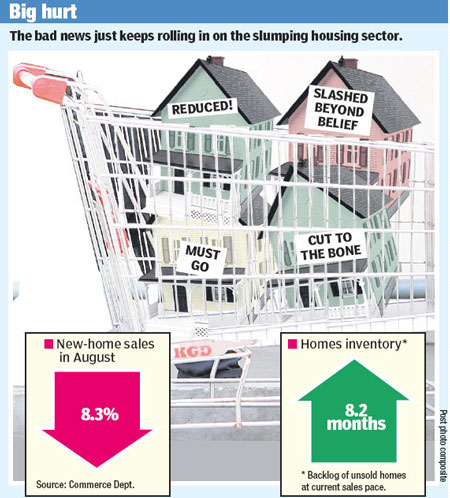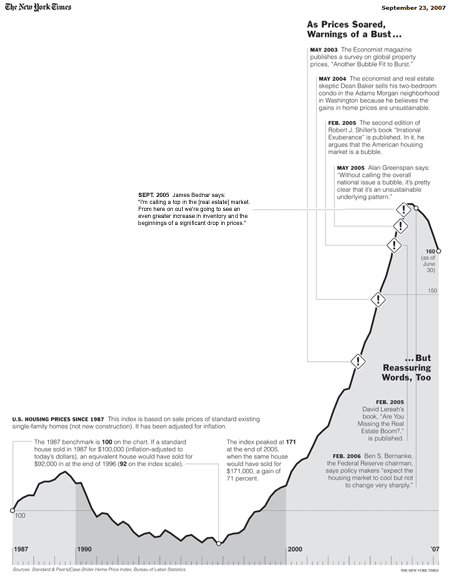From Reuters:
UBS takes $3.4 billion credit hit
Swiss banks UBS and Credit Suisse joined the ranks of casualties from a global credit crunch on Monday, fuelling fresh concern about the depth of the crisis.
…
UBS unveiled $3.4 billion in losses, mainly on securities linked to the U.S. subprime mortgage sector, swept out senior managers and slashed jobs, while Credit Suisse said its results would be “adversely impacted” by the market turmoil but it would remain profitable in the third quarter.European credit spreads widened as the UBS losses underlined concerns about tight credit markets after short-term lending rates jumped on Friday, dashing hopes from earlier last week that credit conditions were easing.
“It definitely fuels ongoing worries on the markets. Credit spreads are widening again and the interbank (lending) market remains very tense,” said Valerie Plagnol, chief strategist at CM-CIC Securities in Paris.
In a speech at the Reuters headquarters in London, Greenspan said the market upheaval stemming from defaults on U.S. home loans to people with poor credit histories “was an accident waiting to happen”.
…
UBS, the world’s largest wealth manager, said the 4 billion Swiss francs ($3.42 billion) write-down would result in a third-quarter loss of as much as 800 million Swiss francs ($683 million).“The critical time will be over in the next six months,” Chief Executive Marcel Rohner told reporters after UBS shed 1,500 jobs in its investment bank.
…
The Swiss banking giant is only the latest in a string of global banks that have reported hits from a downturn in the U.S. housing market, which has triggered a global credit crunch.Banks worldwide have clammed up on lending to each other as they strive to calculate exposure to soured loans, forcing the world’s major central banks to inject emergency funds into the global financial system to prevent it grinding to a halt.
Credit Suisse said on Monday its investment banking and asset management results had been adversely hit.
“It’s probably safe to say UBS won’t be the last bank to announce something like this in the months ahead, but it begs the question as to how long this turmoil will continue,” said Eamonn Hughes of Goodbody Stockbrokers.


